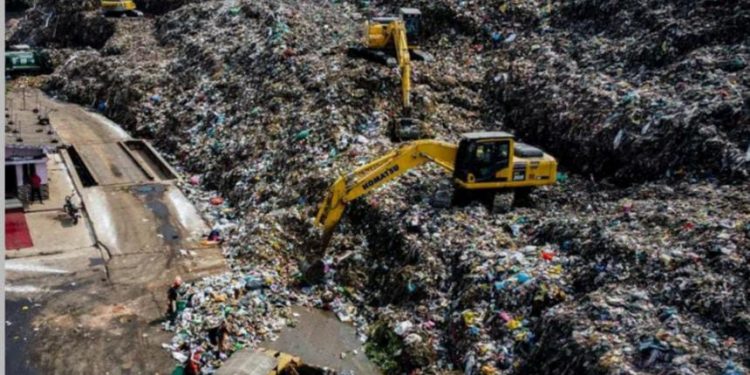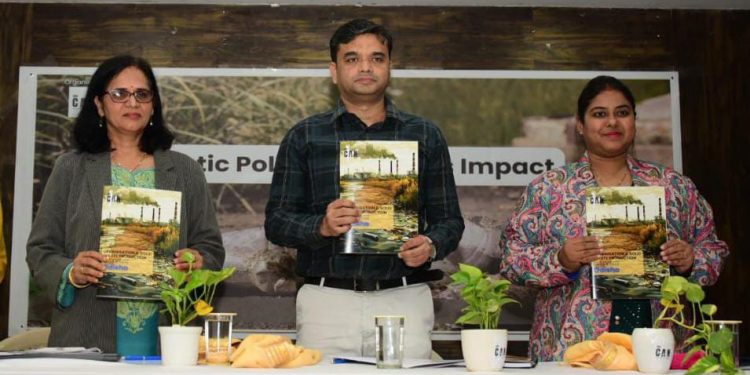Bhubaneswar: Of the 500-tonne of solid waste generated in the City every day, around 30-tonne constitutes plastic waste, a report by India Clean Air Network (ICAN) reveals. However, at the same time, the City faces critical challenges, including the absence of engineered landfill sites and unscientific waste handling practices, the report adds. The environment body Monday released the report on ‘Urbanisation & Solid Waste Production:
Environmental Implications’ pertaining to the Capital city– during a press conference on the occasion of National Pollution Prevention Day to highlight the urgent health concerns posed by plastic pollution and microplastics. The report states that Bhubaneswar faces significant challenges in managing nearly 500-tonne of daily solid waste. According to the report, the City’s average solid waste constitutes about 61.81 per cent biodegradables, 27.15 per cent inert material, 7.8 per cent plastic and leather, and 1.25 per cent metal and glass. “The City’s growing waste management crisis is underscored by the challenges posed by key landfill sites and systemic inefficiencies,” the report states. According to the findings, the Bandhwari Landfill has witnessed a significant increase in waste volumes, while the Temporary Transit Station (TTS) near Sainik School continues to accumulate solid waste without adequate processing.
Similarly, the Bhuasuni open dump relies on outdated practices, with waste being discarded in open heaps or small cement bins, further exacerbating environmental risks. The City also struggles with insufficient infrastructure for primary collection, storage, and transportation of waste. Commenting on the situation, Mamata Panda, Senior Consultant and HoD, Paediatrics and Neonatology, Care Hospitals, said, “Children are particularly vulnerable to the harmful effects of microplastics.” Ajay Mittal, Co-Chairperson ICAN, said, “Plastic pollution and microplastics are silent intruders in our daily lives, impacting not just the environment but our health in profound ways.”








































